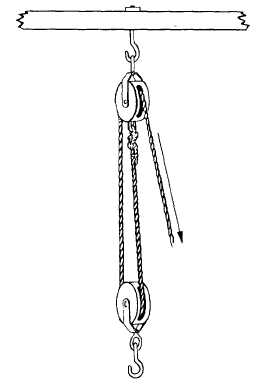I might think differently if my heater were in an attic (yeah, they allow that here). A "spray leak" causes mayhem. I've had friends with a lot of damage with those installations. They had a drain pan and everything, but the leak was small and caused a spray beyond the pan.
Oh, the joys of an attic water heater replacement...in a two story house...with a flimsy pull-down folding stair for access...with every tank inlet and outlet pipe plumbed with soldered copper joints...on a humid 85 degree day.
I thought about replacing my 50-gallon gas unit a couple of months ago. It's a 14 y.o. builder grade unit, and this thread had reminded it was time. I included it on a list of repairman stuff to be scheduled when I take a couple of weeks off w*rk over the holidays.
I didn't climb up to take a look at my tank, however, which I now regret.
Thursday night, DD leaned over the rail at the top of the stairs and called down with six words no one ever likes to hear: "Do you hear a dripping sound?"
Water was dripping from one, then two spots in the second floor ceiling. Investigation showed water was slowing trickling out from screw and connection points at various spots on the outer tank shell. Dear water heater was giving out. The catch pan underneath was full to overflowing, its outlet clogged with some insulation and wood debris the builder had graciously left behind. I pulled the crud out of the drain hole and shut off the gas and water supply to the tank. No shower for DW, no joy for Harry.
Friday: call in to w*rk, research heaters, measure, decide I don't want to try sweating copper pipe for the first time, shop, haul home a heater, drain the tank via a hose stuck out the second floor window, saw the copper fittings loose, call in a favor for BIL to help on Saturday. No shower for DW, no joy for Harry.
Saturday: more measuring, more research, another shopping trip (two stores). My fancy new 170-pound, 12-year tank measures 22" in diameter, about 1-1/2 inches more than the deceased tank. The widest part of the attic stair opening is 24", but for only about 18 inches horizontally before hardware makes it narrower. The tank is just over five feet tall, and the distance from the top edge of the stair opening to the rafters is less than six feet. Over where the tank goes, the gas supply pipe extends 6 inches vertically from the floor at a spot directly in front of the pan, requiring a lift of the tank up and over without enough headroom to keep it vertical.
New words I have learned today:
Barrel Hitch
How to Tie a Barrel Hitch - wikiHow
Gun tackle:
The new tank is in place after BIL, a neighborhood kid and I spent two hours wresting with our 170-pound adversary. I'm taking a break right now before I start in on making the new connections.
Fortunately, my vocabalary proved adequate for the wresting part. I've said it before: there is no doubt that plumbing has the highest cuss-words-per-hour rate of any home repair category.





